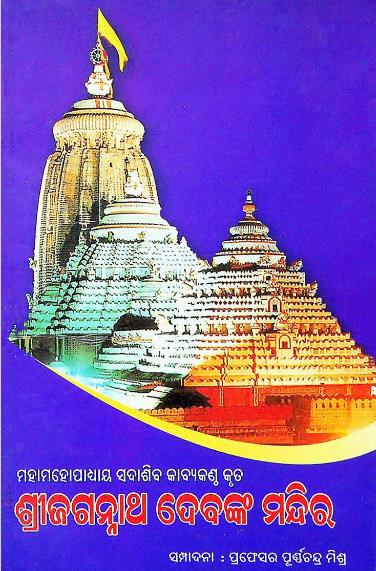The rich cultural and historical tapestry of Odisha is beautifully encapsulated in the essay book Srijagannath Debanka Mandir authored by Sadasib Misra and edited by Purnachandra Misra, published in 2011. This insightful work delves deep into the spiritual significance, architectural grandeur, and the cultural resonance of the famed Jagannath Temple in Puri, presenting it not only as a religious monument but also as a crucial pivot around which the sociocultural life of Odisha revolves.
The book is structured thoughtfully, with each essay weaving a narrative that connects the past with the present, and highlights the interlinking of history, culture, and faith. One cannot help but marvel at the depth of research and the rich presentation style employed by Sadasib Misra. Each essay acts as a portal that transports the reader back in time, offering a glimpse into the temple’s inception and evolution through various historical epochs.
One of the pivotal aspects discussed in the book is the historical context of the Jagannath Temple. Misra takes the reader through the annals of Odisha’s past, providing insights into the temple’s origins, believed to date back to the 12th century. Through meticulous research and well-documented evidence, he sheds light on the patronage it received through various dynasties, particularly the Ganga and the Gajapati dynasties. This rich historical narrative helps readers appreciate the temple not merely as an architectural marvel but as a living testament to Odisha’s historiography and legacy.
Culturally, “Srijagannath Debanka Mandir” emphasizes the temple’s role as a cultural epicenter. The author eloquently articulates how the Jagannath Temple is not solely a place of worship but also a hub of artistic and cultural expressions. The annual Rath Yatra, discussed extensively in the book, illustrates the symbiotic relationship between spirituality and social cohesion in Odisha. The festival, which draws millions of devotees from all over the world, serves as a vivid reminder of the temple’s ability to unify diverse communities through shared faith and collective celebration. Misra’s descriptive prose allows readers to visualize the vibrancy and fervor of this grand event, making it come alive in the imagination.
Moreover, the book delves into the temple’s architecture, which is renowned for its intricate carvings and unique design. Sadasib Misra vividly describes the structure’s aesthetic elements, linking them to the broader artistic traditions of Odisha. His commentary enhances appreciation for the temple’s architectural significance, revealing layers of meaning embedded in its designs and motifs. This not only educates the reader about the aesthetics of the temple but also prompts reflection on the philosophy of life and spirituality that the temple embodies.
In concluding, Srijagannath Debanka Mandir by Sadasib Misra, edited by Purnachandra Misra, stands as a significant contribution to literature on Odisha’s cultural heritage. It encapsulates the essence of the Jagannath Temple, bridging history, culture, and devotion. The book serves as an essential read for enthusiasts of Odisha’s rich tradition, offering profound insights that resonate through time. Its analytical depth combined with literary elegance makes it an exemplary work that will be beneficial for scholars, tourists, and anyone intrigued by the spiritual legacy of India.
Books Info
| Books name | Srijagannath Debanka Mandir/ଶ୍ରୀଜଗନ୍ନାଥ ଦେବଙ୍କ ମନ୍ଦିର |
| Author | Sadasib Misra; Purnachandra Misra, Ed. |
| No Of pages | 89 |
| Publisher | Tithi Books |
| Publication | 2011 |
| Printed At | Janup graphics |
| Distributor | NA |

